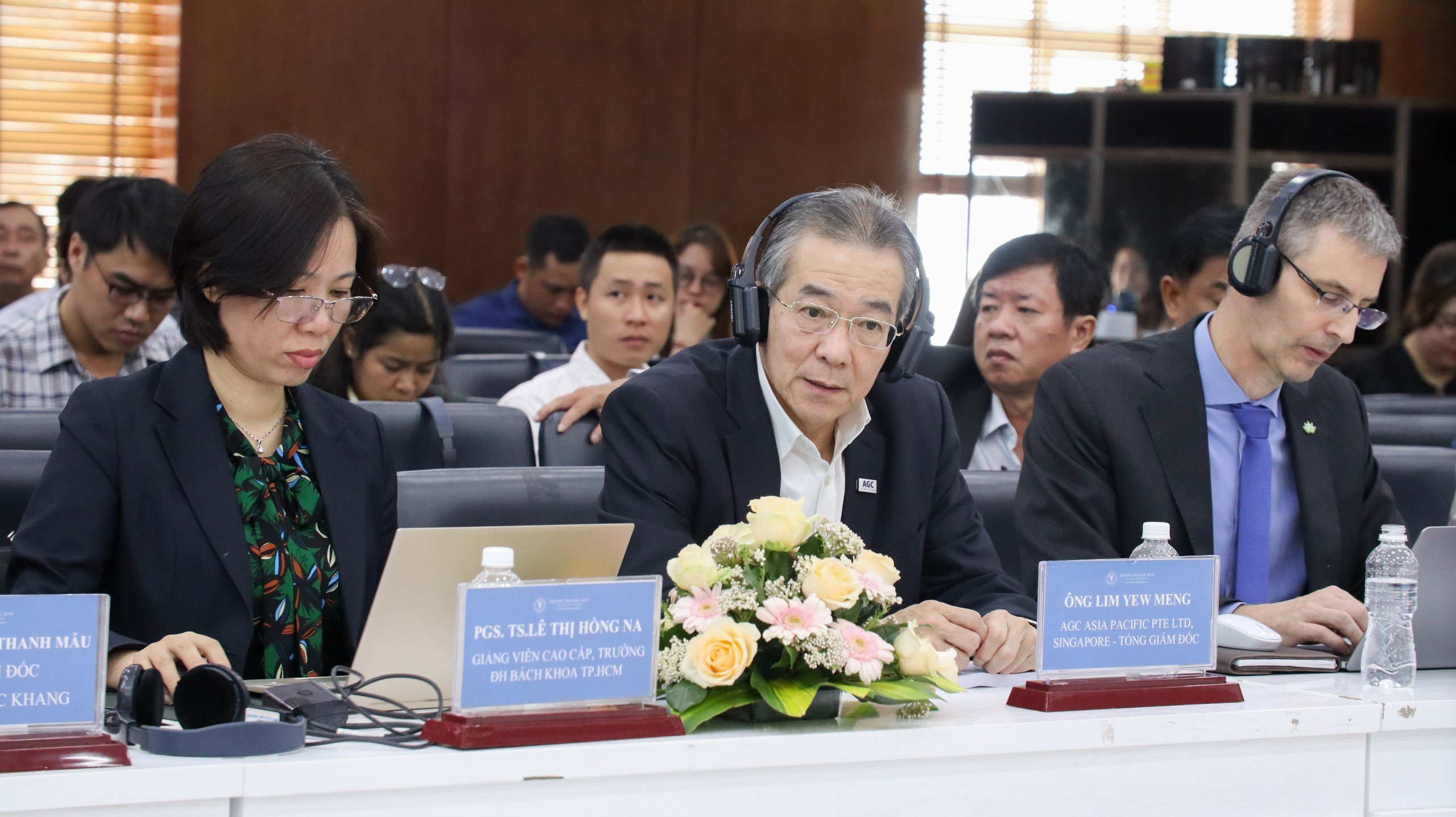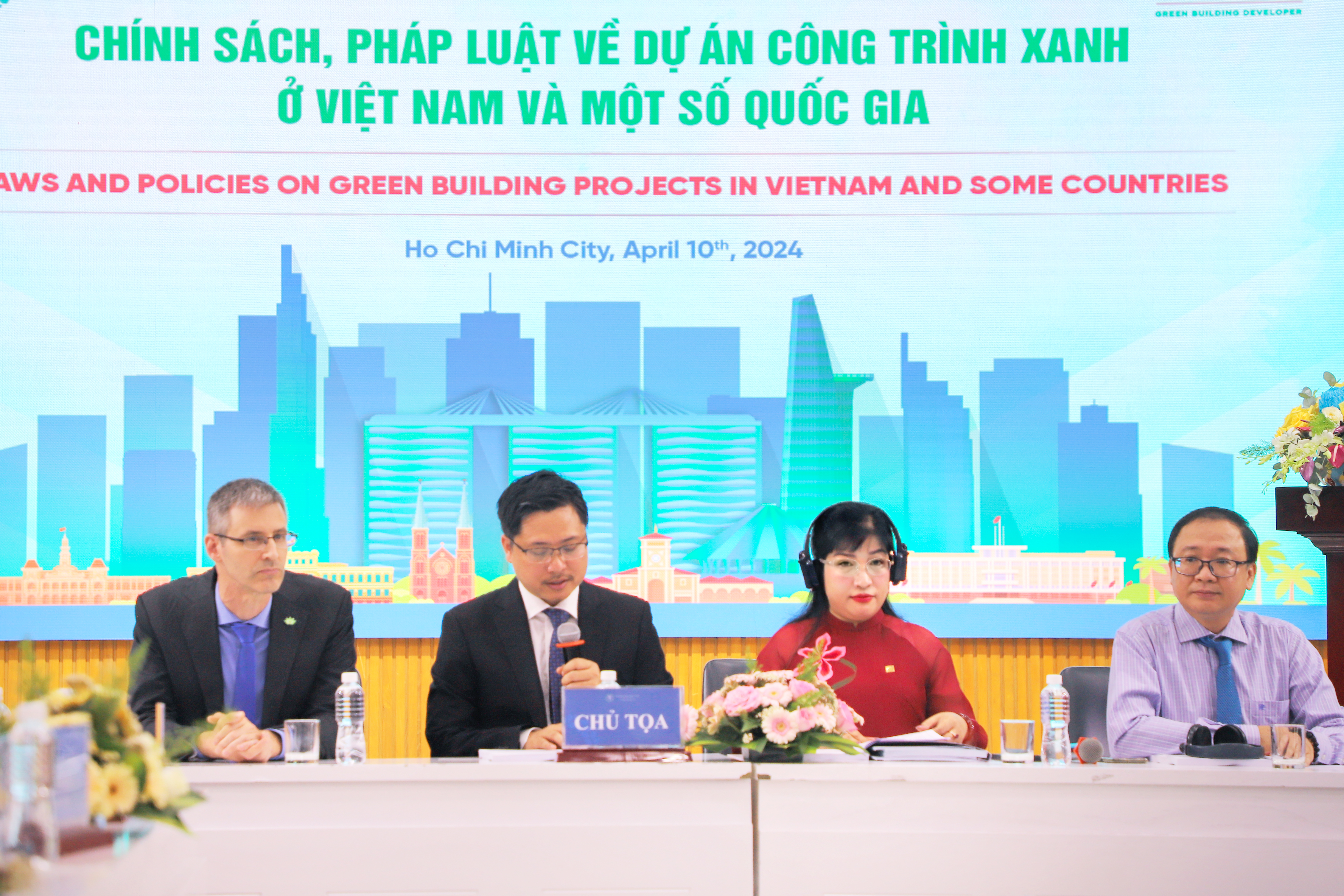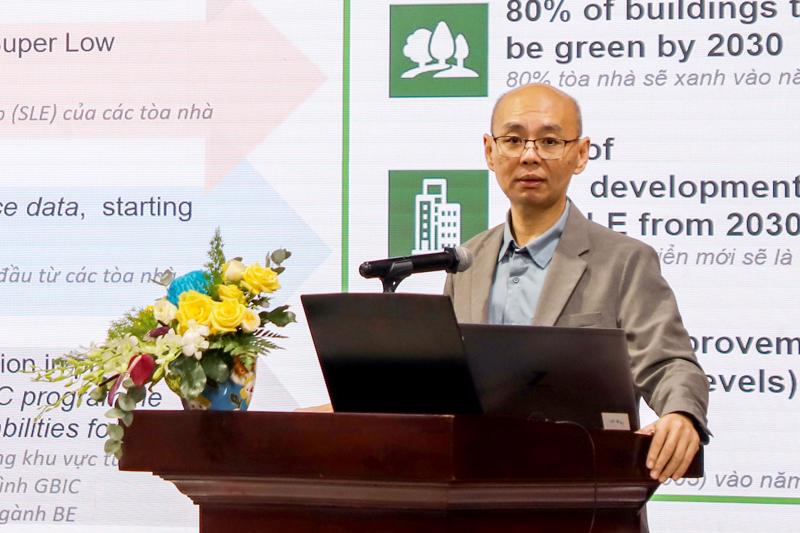Vietnam needs legal regulations to implement preferential policies for the development of green buildings, as the initial cost of such projects is 1.2 to 10 per cent higher than a conventional project. Existing preferential policies and support from the government for investors implementing green building projects, meanwhile, remain insignificant.
This was among the proposals discussed at the first international conference in Vietnam on “Laws and policies on green building projects in Vietnam and other countries”, co-organized by the Ho Chi Minh City University of Law and the Phuc Khang Corporation on April 10. More than 120 guests were in attendance, including experts, lawyers from Singapore, Malaysia, the UK, and Vietnam, representatives from authorities and businesses, lecturers, graduate and post-graduate students, and students of related faculties.
Laws and policies in Vietnam and the international experience
The conference was held in a bid to identify and analyze the legal, economic, environmental, and practical aspects of green building development in Vietnam and to learn from international experience.
Its agenda included two main sessions, with valuable presentations made on green buildings, such as “Bridging Green Policies and Implementation - The Case of Singapore”, “Singapore’s Policies and Laws on Green Building Development and Lessons Learned for Vietnam”, “Law and Policy on Green Real Estate Projects in Malaysia”, and “Mechanisms to Incentivize Green Buildings Towards Net-Zero Goals in London, UK”.
There were also presentations and proposals on policies and laws related to green building development in Vietnam, such as “Legal Basis for Implementing Green Building Projects in Vietnam”, “Green Buildings in Vietnam - Development Process and Challenges”, and “Laws on Green Credit and Green Bonds for Investment Projects: Current Status and Recommendations”.

“Today we are witnessing an era when green buildings are not simply a trend but an integral part of our global commitment to sustainable development,” Associate Professor Tran Viet Dung, Vice Principal of the Ho Chi Minh City University of Law, said in his opening address. “Green buildings have proven to not only bring positive changes to the landscape but also to establish a practical, dynamic foundation for research on sustainable development.”
“Achievements around the world also highlight the potential for collaboration between educational institutions and government agencies in expanding the boundaries of green construction,” he added.
Vietnam’s construction sector is promoting green construction measures, reflecting the country’s commitment to sustainability and environmental protection.
Within such a context, the Ho Chi Minh City University of Law recognizes the urgent need to integrate the development of green construction activities with scientific research.
The cooperation in organizing the conference between the University and the Phuc Khang Corporation, along with research and exchanges, is a testament to promoting partnerships to contribute to common development.
Speakers touched on the limitations in the development of green buildings in Vietnam. Real estate businesses remain hesitant to participate in the field due to the high investment costs, their lack of experience, and incomplete evaluation criteria for green buildings in the country.
The Ministry of Construction and other relevant ministries and authorities are still in the process of coordinating to develop preferential regulations, supportive taxes and fees, and to facilitate documentation procedures for projects on energy saving and green buildings.
The conference invited leading experts and lawyers in green buildings overseas, who provided a great deal of practical and interesting content. Typical was the presentation from Mr. Owen Wee, Senior Associate at Surbana Jurong Architecture and former Board Member of the Singapore Green Building Council, who discussed the initiatives and experiences in Singapore’s green construction journey.
“The Singapore Green Building Master Plan (SGBMP) will play a key role in achieving a sustainable and low-carbon built environment in support of the Singapore Green Plan 2030, a national sustainability movement that aims to solve the problem of climate change,” he told the gathering.
The Singapore Green Plan 2030, he explained, comprises five pillars that will influence all aspects of people’s lives: 1. City in Nature, 2. Energy Reset, 3. Sustainable Living, 4. Green Economy, and 5. Resilient Future. The “City in Nature” initiative aims to create a green, livable, and sustainable environment for all Singaporeans by expanding green spaces and planting 1 million trees across the island, while building more parks within walking distance of residential areas to establish carbon sinks.”
Proposals from pioneering developers
Ms. Luu Thi Thanh Mau, Deputy Chair of the Vietnam Young Entrepreneurs Association, Deputy Chair and General Secretary of the Ho Chi Minh City Real Estate Association, and CEO of the Phuc Khang Corporation, is known as one of the pioneers in green buildings in Vietnam. She was among the outstanding speakers at the conference, with a presentation entitled “Singapore’s policies and laws on green building development and lessons learned for Vietnam”.
Based on her practical experience and research, she proposed the Ministry of Construction issue a green building assessment toolkit specifically applicable to Vietnam and have the power to evaluate and issue green building certification. This would prevent the arbitrary application of green buildings, and form a basis for developing green buildings in a methodical, serious, and practical manner.

She also proposed regulations on a mandatory roadmap for the implementation of green building projects, which would be seen as sending a signal to the private sector and investors that the government is serious about green buildings.
Ms. Mau also pointed out that the initial cost of conducting a green building project in Vietnam is more than a conventional construction project, ranging from 1.2 per cent to 10 per cent higher. Meanwhile, preferential policies and support from the government for investors implementing such projects remain insignificant. Consequently, the sales price of green building projects is much higher than at conventional projects, creating a reluctance among investors to invest in these projects.
Vietnam, she went on, needs to build more effective preferential policies for green building investors, such as (i) supporting loans at preferential interest rates, (ii) researching a floor area bonus, and (iii) supporting green bond issuers with relevant costs. It is also necessary to create an awards program for organizations and individuals that contribute to the implementation of green buildings.
Last but not least, to promote green building in Vietnam, along with policies and laws, it is also necessary to raise awareness among both investors and consumers.
“This can start first in urban areas, such as through training programs from universities and then to all social classes, conducting a communications strategy on green buildings for customers and the benefits they bring in terms of economy, society, and the environment,” she said.









 Google translate
Google translate